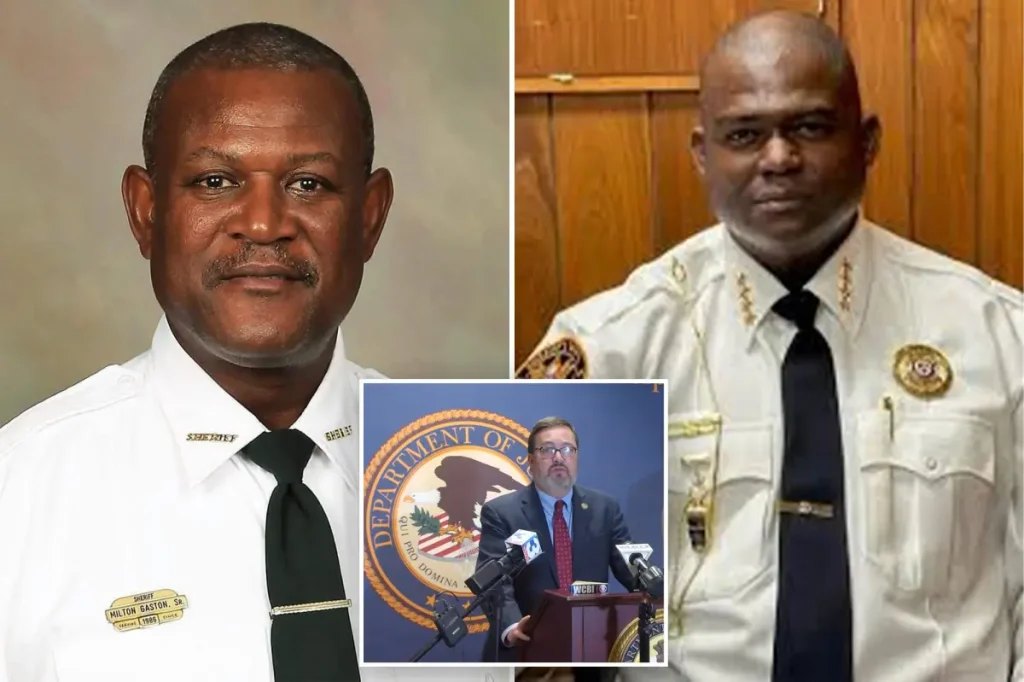Corruption in the Mississippi Delta: Law Enforcement Officers Indicted for Drug Trafficking Protection
In a stunning revelation of widespread corruption across the Mississippi Delta region, federal authorities have indicted 20 individuals, including 14 current or former law enforcement officers, on charges of accepting bribes to protect what they believed were drug trafficking operations. This extensive investigation, spanning multiple counties in both Mississippi and Tennessee, has uncovered a deeply troubling betrayal of public trust in a region already struggling with economic challenges and historical inequities. Among those arrested were two sitting sheriffs – Washington County Sheriff Milton Gaston and Humphreys County Sheriff Bruce Williams – whose positions of authority make their alleged involvement particularly devastating to community confidence in law enforcement. The investigation began when arrested individuals reported being forced to pay bribes to various officials, setting off what would become a years-long probe into systemic corruption.
The scale of the corruption is staggering, with some officers allegedly accepting bribes as large as $20,000 and $37,000. According to U.S. Attorney Clay Joyner, who described the situation as “a monumental betrayal of public trust,” the indicted officers provided armed escort services on multiple occasions to an FBI agent posing as a member of a Mexican drug cartel. The indictments detail how these law enforcement personnel knowingly helped transport what they believed was 55 pounds of cocaine through Mississippi Delta counties and into Memphis. Furthermore, some officers extended their protection to cover the transportation of drug proceeds, creating a complete pipeline of protection for what they thought was a major narcotics operation. This level of coordination suggests not isolated incidents of corruption but rather an established network of protection for sale.
Sheriffs Gaston and Williams allegedly received substantial bribes for giving these operations their “blessing,” effectively sanctioning illegal activities within their jurisdictions. The indictment further claims that Gaston attempted to disguise these illicit payments as campaign contributions, which he failed to report as required by law. This attempt to launder bribe money through seemingly legitimate political donations represents an additional layer of deception. Robert Eikhoff, special agent in charge of the FBI’s Jackson Field Office, emphasized the fundamental breach these actions represent: “Law enforcement is only effective when the community they protect can trust the law enforcement officers are honestly serving the community’s interests. This type of corruption strikes at the heart of the community.” These words highlight how such betrayals undermine the very foundation of effective policing in communities that most need reliable public safety resources.
Beyond the primary charges of accepting bribes for protection services, nineteen of the twenty indicted individuals also face charges for federal gun law violations. The extensive list of defendants includes not just the two sheriffs but also Brandon Addison, Javery Howard, Truron Grayson, Sean Williams, Dexture Franklin, Wendell Johnson, Marcus Nolan, Aasahn Roach, Jeremy Sallis, Torio Chaz Wiseman, Pierre Lakes, Derrik Wallace, Marquivious Bankhead, Chaka Gaines, Martavis Moore, Jamario Sanford, Marvin Flowers, and Dequarian Smith. Court records indicate that the federal defender’s office is representing sixteen of the twenty charged individuals, including both sheriffs. The federal defender’s office has declined to comment on the pending cases, maintaining their professional discretion while the legal process unfolds. This widespread involvement of law enforcement personnel raises profound questions about oversight, accountability, and the culture within these departments.
Mississippi Governor Tate Reeves expressed disappointment upon learning of the allegations, stating firmly that “The law must apply equally to everyone regardless of the title or position they hold.” He emphasized that those who betray the public’s trust in Mississippi will face consequences, a statement that acknowledges both the seriousness of the situation and the need for accountability at all levels of government. While the governor’s statement signals official condemnation of such corruption, it comes against a backdrop of repeated federal investigations into Mississippi law enforcement agencies in recent years. This pattern suggests deeper, more systemic issues within the state’s law enforcement infrastructure that may require comprehensive reforms beyond individual prosecutions.
Unfortunately, this case is not an isolated incident but rather part of a disturbing pattern of law enforcement corruption in Mississippi. In recent years, several sheriffs and police departments have faced federal scrutiny and convictions. Former Hinds County Sheriff Marshand Crisler was convicted in 2024 for accepting $9,500 in bribes and providing ammunition to a convicted felon. That same year, former Noxubee County Sheriff Terry Grassaree pleaded guilty to making false statements to the FBI while being questioned about requesting and receiving nude photos from a female inmate. In 2019, William Brewer, a former Tallahatchie County sheriff, received a six-year prison sentence for extorting bribes from a drug dealer. Perhaps most disturbing was a 2023 case where six law enforcement officers pleaded guilty to torturing two Black men, triggering a Department of Justice investigation into the Rankin County Sheriff’s Office. Similarly, a DOJ probe concluded in 2023 that officers of the Lexington Police Department had discriminated against Black people. These cases collectively paint a picture of deeply entrenched problems within some Mississippi law enforcement agencies, raising urgent questions about oversight, accountability, and the difficult but necessary work of rebuilding community trust in regions where that trust has been repeatedly violated.


